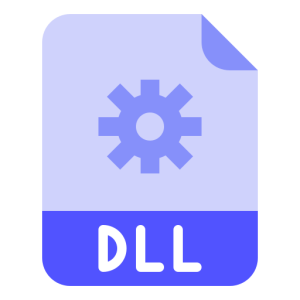Description
MF.DLL is a dynamic link library (DLL) file that is part of the Windows Media Foundation framework. It is a core component of the Windows operating system, providing support for media playback, encoding, and decoding. The DLL contains a collection of functions and resources that enable applications to handle various multimedia formats and interact with media devices.
This library is essential for multimedia-related tasks and allows applications to access and utilize the features provided by the Windows Media Foundation. It enables media applications to work with audio and video files, streams, and devices, providing a unified platform for media playback and manipulation.
MF.DLL handles media-related functionalities such as audio and video rendering, streaming, format conversion, synchronization, and media source management. It provides a set of high-level programming interfaces that abstract the underlying hardware and provide a consistent way for applications to work with different media formats and devices.
Developers often rely on the functionality provided by MF.DLL to build media-rich applications that can play audio and video files, capture media from cameras and microphones, stream content over the network, and perform other multimedia-related tasks.
Purpose and Functionalities
MF.DLL offers a wide range of functionalities related to media processing and playback. Some of its key purposes and functionalities include:
- Media Playback: The DLL enables applications to play various types of audio and video files, providing support for common formats such as MP3, AAC, H.264, and MPEG.
- Media Capture: MF.DLL allows applications to capture audio and video from cameras, microphones, and other media devices, providing access to features such as video recording and audio input.
- Streaming: The library supports streaming of media content, enabling applications to receive and process audio and video streams over the network or from other sources.
- Format Conversion: MF.DLL facilitates format conversion and transcoding of media files, allowing applications to work with different codecs and container formats.
- Media Synchronization: The DLL provides mechanisms for synchronizing audio and video streams, ensuring proper playback synchronization and lip movement alignment.
- Media Metadata: MF.DLL allows applications to extract and manipulate metadata associated with media files, such as artist names, album titles, and cover art.
Common Use Cases
MF.DLL is commonly used in a variety of applications that deal with multimedia processing and playback. Some common use cases include:
- Media Players: MF.DLL serves as a foundation for media player applications, allowing them to support a wide range of audio and video formats and provide advanced playback features.
- Video Conferencing: Applications that offer video conferencing capabilities rely on MF.DLL to handle audio and video capture, encoding, and decoding, as well as streaming and synchronization.
- Video Editing: MF.DLL provides the necessary tools for applications to edit and manipulate video content, including format conversion, trimming, merging, and applying effects.
- Media Streaming: Streaming platforms and applications utilize MF.DLL to handle the encoding, decoding, and transmission of audio and video streams over the internet or local networks.
- Digital Signage: Software solutions for digital signage rely on MF.DLL to play and manage multimedia content on displays, including videos, images, and animations.
- Media Conversion: Applications that convert media files from one format to another utilize MF.DLL’s format conversion capabilities to handle the encoding and decoding of different codecs and container formats.

